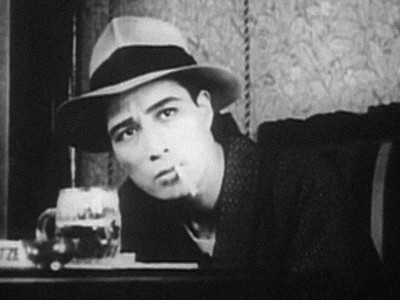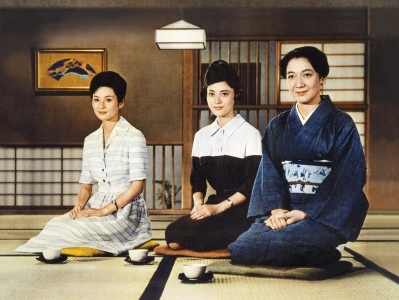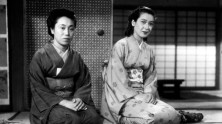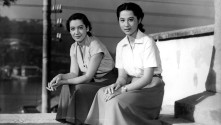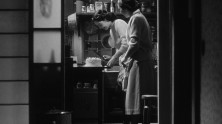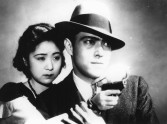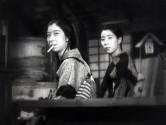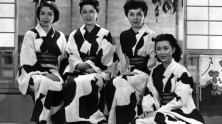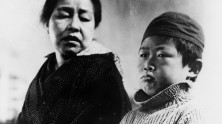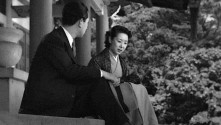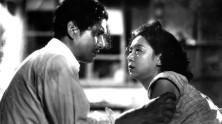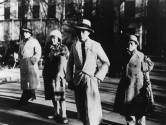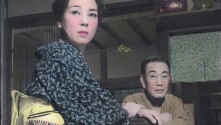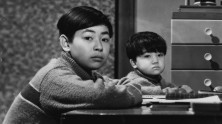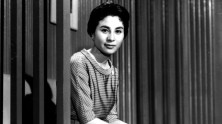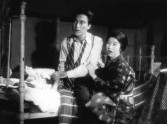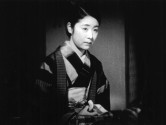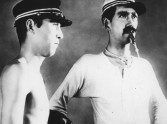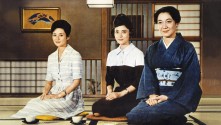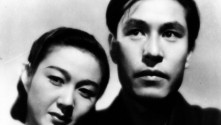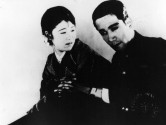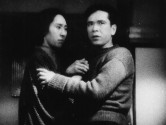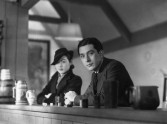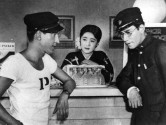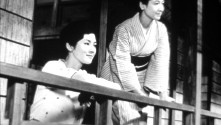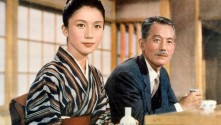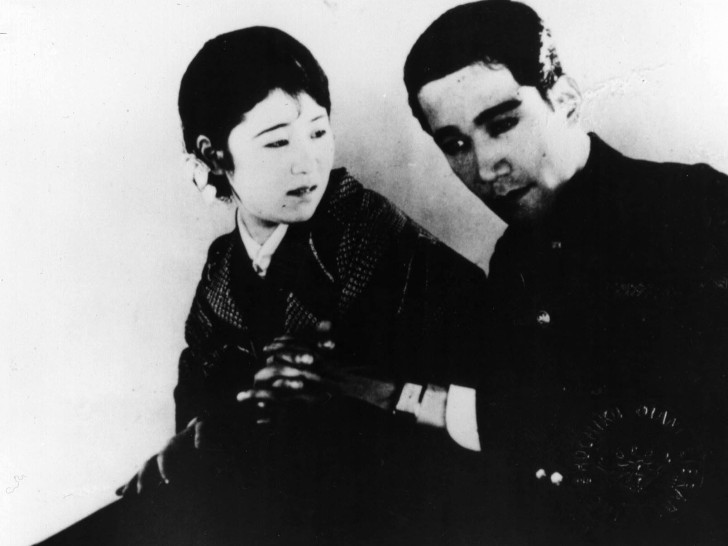
I Flunked, But …
(Rakudai wa shitakeredo)
Screening on Film
With Saito Tatsuo, Tanaka Kinuyo, Ryu Chishu.
Japan, 1930, 35mm, black & white, silent, 65 min.
Japanese intertitles with English subtitles.
Print source: Janus Films
Takahashi (Saito Tatsuo) and his friends—one of them played by twenty-four-year-old Ryu Chishu—would rather cheat than study. A botched cheating operation results in the entire cohort flunking the exam. While other students enter the competitive job market, they have to spend an extra term in school. The brisk and brutal humor of I Flunked, But… is economically constructed, requiring only a small set and some simple props (a shirt covered in test answers, sugar cubes, a fake gun, toenail clippers). Like the unemployed graduate in I Graduated, But… who overcomes his shame, Takahashi learns what it means to hold his head up high regardless of academic failure or success. A touching conversation between Takahashi and his girlfriend (Tanaka Kinuyo) about wearing a graduation suit with dignity recalls a similar story from Ozu’s youth: despite being expelled from his school dormitory at age seventeen, Ozu showed up for his graduation in a new uniform, proudly beaming among his peers.
Only ten minutes remain of Ozu’s I Graduated, But …, yet even as a fragment it is a striking portrait of life in the aftermath of the 1927 Showa Financial Crisis. The film’s plot—an unemployed college graduate overcomes his shame—delivers an early version of the preeminent message in Ozu’s early films, which stress the importance of dignity. Nomoto Tetsuo (Takada Minoru) receives an offer to work as a receptionist, but he decides to hold out for something more befitting of his diploma. When his mother (Suzuki Utako) and girlfriend Machiko (Tanaka Kinuyo) visit, he lies that he is employed. The idle days seen in Ozu’s depictions of college life loom over his depictions of life after college. Yet rather than indict external conditions, the film is fixed on Tetsuo’s attitude towards his circumstances as he comes to accept that postgraduate existence consists of a different—or rather, less opulent—set of comforts than he imagined. In her first appearance in an Ozu film, legendary actress and director Tanaka Kinuyo plays Machiko with a quiet toughness, pure-hearted but far less naïve than her college-educated husband.
